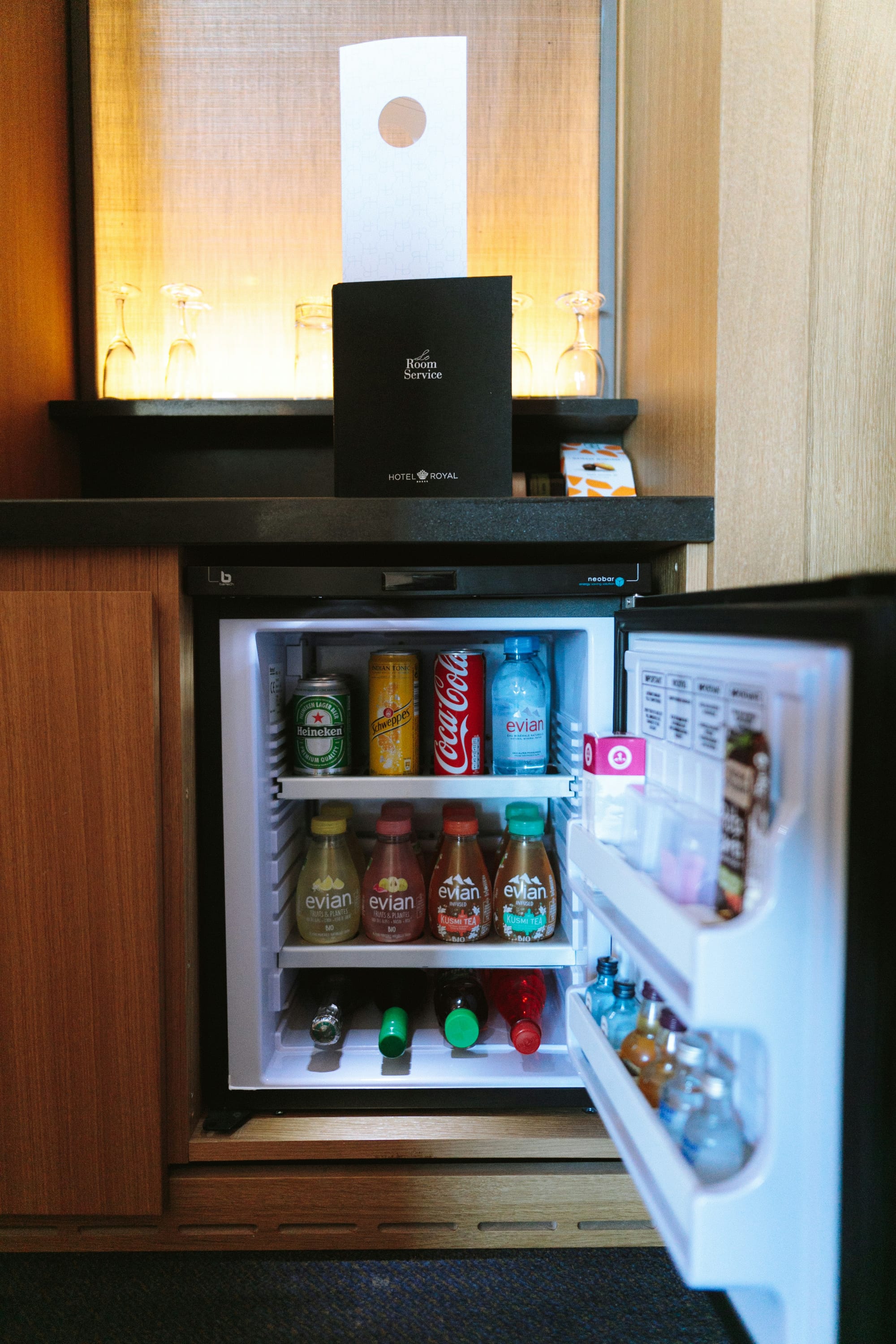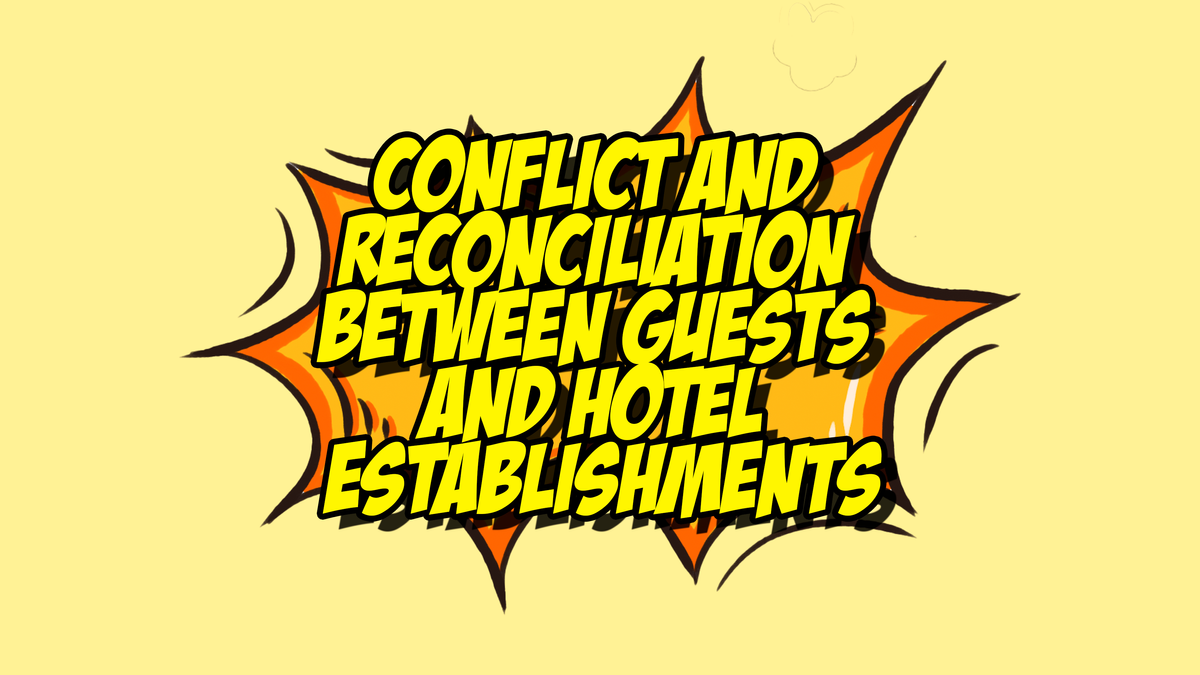In the hospitality industry, maintaining a harmonious relationship between guests and hotel establishments is paramount. However, due to the dynamic nature of hotel operations and the diversity of guests' expectations, conflicts are inevitable. The manner in which these conflicts are managed and reconciled often determines a hotel’s reputation, guest satisfaction, and long-term success. This discussion will explore into the common sources of conflict between guests and hotels, the impact of these disputes, and the strategies employed by establishments to foster reconciliation.
Common Sources of Conflict
Service Quality Discrepancies
Guests anticipate a high level of service, especially in luxury hotels where they invest more for an exceptional experience. Any shortfall—such as unclean rooms, delays in service, or unprofessional behavior from staff can lead to frustration and disappointment. The gap between what was promised and what is delivered can magnify this dissatisfaction, often resulting in conflict. Miscommunication or misrepresentation of amenities further exacerbates the situation. For instance, a guest who booked a room expecting a panoramic sea view but receives a view of the city instead may feel misled, leading to heightened dissatisfaction and potential complaints.


Photo by Adi Goldstein / Unsplash and Photo by Humphrey Muleba / Unsplash
Billing and Pricing Issues
Billing discrepancies and hidden fees are common triggers of conflict between guests and hotels. When guests encounter unexpected charges, such as resort fees, service charges, or additional taxes, they often feel misled or overcharged. This sense of being taken advantage of can lead to frustration and mistrust. The problem is further aggravated by unclear pricing structures and a lack of proper explanation from hotel staff during the booking or check-in process. Without transparency, guests may perceive the hotel as deceptive, leading to disputes over payments and diminished satisfaction with their overall experience, ultimately impacting the hotel’s reputation.

Noise and Disturbances
Guests choose hotels with the expectation of a peaceful, comfortable stay, often seeking relaxation away from their daily routines. However, disturbances such as excessive noise from neighboring rooms, ongoing construction, or loud events hosted within the hotel can severely impact their experience. These interruptions can lead to complaints, as guests feel their comfort and peace are compromised. If hotel management does not address these concerns swiftly and effectively—whether by moving guests to quieter rooms or offering compensation—tensions can escalate into disputes. The failure to resolve such issues can damage the hotel's reputation and deter guests from returning in the future.

Miscommunication and Cultural Differences
As hotels welcome a growing number of international guests, they face the challenge of navigating language barriers and cultural differences. Simple misunderstandings—such as confusion over check-in policies, meal schedules, or house rules—can quickly escalate if not handled with care and cultural sensitivity. For example, a guest unfamiliar with a country's customs may unknowingly violate local norms or hotel policies, leading to friction. Furthermore, varying cultural expectations around service quality and guest conduct can heighten tensions. What one culture perceives as polite may be seen differently by another, making it crucial for hotels to bridge these gaps through understanding and effective communication.

Impact of Conflict on Hotels
Conflicts between guests and hotels can have a lasting impact if not managed effectively. Negative guest experiences, particularly when shared on review platforms like TripAdvisor or Google Reviews, can significantly damage a hotel's reputation. In the age of digital word-of-mouth, a few bad reviews can lead to a downturn in bookings, impacting revenue.
Moreover, unresolved conflicts can result in legal challenges, particularly in cases of negligence or breach of contract. Hotels may face compensation claims or even lawsuits, adding financial strain and tarnishing their public image.

Reconciliation Strategies
Effective Communication
Clear, transparent communication is essential in resolving conflicts between guests and hotels. To minimize misunderstandings, hotels must clearly explain all terms, conditions, and potential charges during the booking process, ensuring guests are fully informed. This includes being upfront about fees, policies, and any limitations on services. Frontline staff play a pivotal role in maintaining this clarity and should be well-trained to address guest inquiries with professionalism and efficiency. This proactive approach can prevent miscommunication from escalating into disputes. When conflicts do arise, prompt and empathetic responses are crucial in de-escalating tensions, restoring trust, and creating positive resolutions for the guest experience.

Proactive Problem-Solving
Hotels that adopt a proactive approach to guest complaints often excel in conflict resolution and guest satisfaction. By addressing potential issues—such as room cleanliness, noise disturbances, or service delays—before the guest has to complain, the hotel demonstrates attentiveness and a genuine commitment to delivering a quality experience. This proactive strategy not only prevents dissatisfaction but also builds trust with the guest. For example, if a guest experiences excessive noise from a nearby event and voices a complaint, offering a complimentary room upgrade or free services such as meals or spa access can ease their frustration. A real-world instance of this occurred when a guest at a Marriott hotel complained about construction noise. The hotel responded by upgrading the guest to a quieter room, offering a free dinner, and providing a discount on their next stay. This turned a negative situation into a positive experience, showcasing the hotel's dedication to customer satisfaction and creating loyalty.

Guest-Centric Policies
Flexibility is crucial in managing conflicts and ensuring guest satisfaction in hotels. By implementing guest-centric policies like flexible check-in and check-out times, compensating for service shortcomings, and maintaining a clear refund policy, hotels can build goodwill and trust with their guests. These policies provide room for adjustment when things go wrong, helping to smooth over potential conflicts. Empowering staff to make on-the-spot decisions, such as offering late check-out or room upgrades in response to guest dissatisfaction, streamlines the resolution process. This not only resolves issues more quickly but also shows a commitment to personalized service, making the guest feel valued and understood.
Cultural Sensitivity Training
In the global tourism industry, hotels benefit greatly from investing in cultural sensitivity training for their staff. This training equips employees with the knowledge to better understand and cater to the varied needs, expectations, and behaviors of international guests. For instance, guests from different cultures may have specific dining preferences, unique communication styles, or distinct views on privacy and personal space. Being aware of these differences can prevent misunderstandings that may otherwise lead to conflicts.
A lively example of this occurred at a luxury hotel in Tokyo. When hosting a large group of Middle Eastern guests, the hotel staff, trained in cultural sensitivity, adjusted meal offerings to include halal options and respected prayer times by providing private spaces for worship. The staff's awareness of these cultural needs not only avoided potential discomfort but also elevated the guests' overall experience, leading to positive feedback and stronger relationships. This example highlights how cultural sensitivity enhances guest satisfaction and minimizes conflicts rooted in miscommunication or differing expectations.

Leveraging Technology
Hotels are increasingly adopting technology to streamline operations, prevent conflicts, and improve guest satisfaction. Mobile apps now allow guests to easily check in, make requests for room service, and report any issues in real time, eliminating the frustration of long wait times or miscommunication. Automated billing systems also offer transparency by ensuring guests can review charges before checkout, reducing discrepancies that often lead to disputes.
A lively example comes from Hilton’s digital key app, which lets guests check in, choose their room, and even unlock it using their smartphones. Additionally, feedback systems within the app allow guests to report issues like a noisy room or malfunctioning amenities. If a guest reports a problem, hotel staff are instantly notified, allowing them to resolve it before the guest escalates the issue to a formal complaint. For example, when a guest at a Hilton property reported a broken air conditioner via the app, staff quickly responded by offering a room change, resolving the issue before it turned into a major inconvenience. This use of technology not only enhances efficiency but also creates a smoother, more responsive guest experience.

Conclusion
Conflicts between guests and hotel establishments are inevitable in the dynamic hospitality industry. However, the key to long-term success lies in how these conflicts are managed and reconciled. Through clear communication, proactive problem-solving, flexible policies, and a commitment to understanding diverse guest needs, hotels can transform potentially damaging conflicts into opportunities for improving service. Ultimately, effective reconciliation strategies not only foster guest satisfaction but also build a positive, long-lasting relationship between guests and the hotel, ensuring repeat business and positive word-of-mouth.
- Are we communicating clearly with our guests? Effective communication helps prevent misunderstandings and addresses issues before they escalate. Ensuring that guests understand hotel policies and services upfront can dramatically reduce conflict.
- Do we have proactive problem-solving strategies? Anticipating guest needs and addressing potential issues—such as noisy environments or service delays—before they arise shows dedication to guest satisfaction. How can we ensure that we’re resolving issues before guests need to complain?
- Are we flexible in our policies? Flexibility in check-in times, refunds, or compensation for service failures can turn a frustrating experience into a positive one. Are our policies guest-friendly and adaptable to unique situations?
- Are we considering cultural differences? Understanding the cultural backgrounds of our international guests helps prevent misunderstandings and creates a welcoming environment for all.
Your Turn: Think about a recent guest interaction that involved a conflict. Could clearer communication or a more flexible approach have resolved the issue sooner? What steps can you take to ensure a smoother experience next time?



